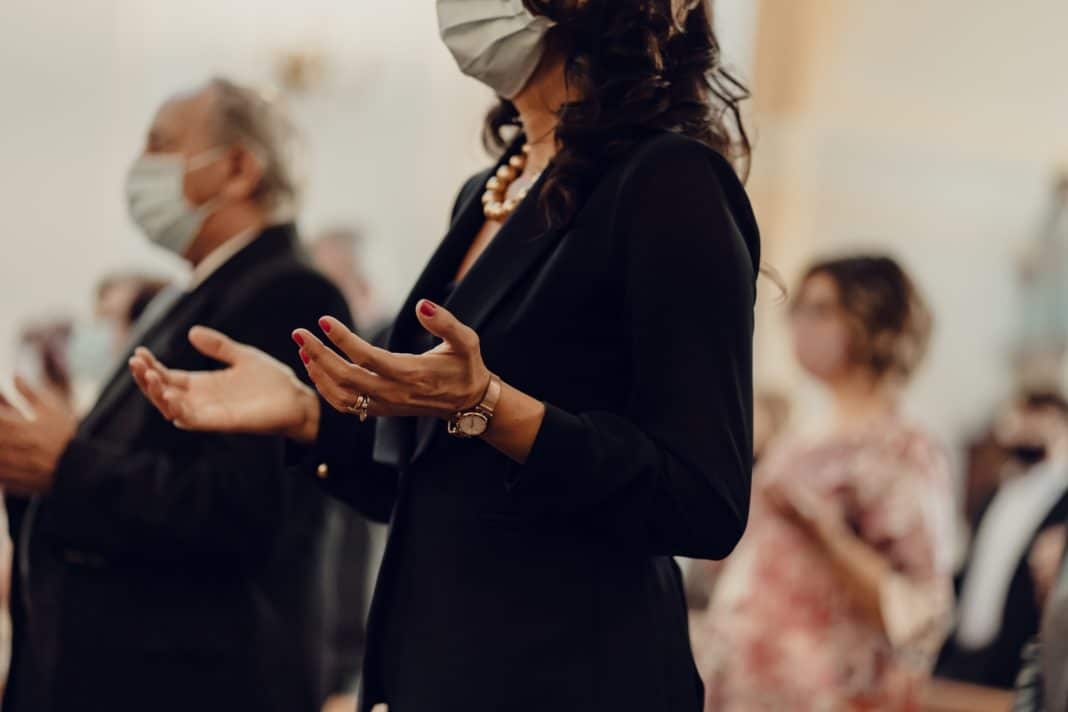Time For Meditation and Contemplative Prayer
by Susan L. DeHoff
1. What has been the greatest challenge for you as a minister during this crisis?
By far, the greatest challenge has been providing pastoral care. On March 16, 2020, I became the pastor of a congregation of shut-ins. In addition to elderly shut-ins who were accustomed to that way of life, congregants who were “hale and hardy” were shut in. The uncertainties of the pandemic’s duration along with the fears associated with the virus itself sharply increased the need for pastoral care among this population, while at the same time making it impossible to be physically present with them. As both pastor and pastoral psychotherapist, I have been keenly aware of the increase in anxiety among congregants, in some cases reaching a clinical level, which made providing pastoral care even more critical.
There was also the challenge of how to care for the hospitalized when no visits were allowed. Some were hospitalized for surgical procedure. One person experienced complications that kept him hospitalized for a month. Talking on the phone was difficult for him. By far, the worst moment was praying over the phone with a beloved elderly member dying from COVID. We were both isolated from each other in that walk through the shadow of death.
2. What do you think you and your congregation may have learned through this crisis?
Many members learned the importance of focusing on what we can do rather than on what we cannot do. March 16, 2020 was also the night of the monthly Session meeting. I invited a member who is a Commander in the U. S. Health Service to give us facts about the virus and how we could avoid contracting it while continuing the church’s missions to the poor and our ministry more generally. I also invited a member who is a professional educator in audio-visual technology, to give us facts about how we could begin live streaming Sunday morning worship services. We began live streaming the following Sunday, adhering to government safety regulations to protect the production crew. We’ve learned to value the importance of each other’s gifts, especially those very gifts different from those customarily applauded.
3. What do you see as the greatest challenge facing your congregation in the future?
The greatest future challenge is the same as that of the last two or three decades. A few powerful members have dominated the other members, making it difficult for other people to have a voice and a role. While there is now a new set of needs, especially discerning how media and technology can and should be used in ministry and mission, the greatest challenge remains helping all members find their voice, opportunities to raise it, and empowerment to use it to share the wisdom, insight, and gifts God––Father, Son, and Holy Spirit––gives them.
Because we re-opened as soon as allowed, we have not suffered nearly the financial loss or membership apathy that some other churches have experienced. There has been a feeling that life for our church was only slightly disrupted, that for the most part things went on as usual. So, many members see life going on post-pandemic as it had been pre-pandemic. Getting this very conservative church to put our church in the context of a changed world is not going to be easy.
4. What good do you think might come from this crisis?
Live streaming has extended the reach of our worship services to include other sections of the country and nations around the world. The increased use of technology has also given significant roles to members who previously did not participate in the church’s ministry. As a result of our May 2020 reopening, people seeking a place to worship in person attended our services, bringing in new members with gifts and talents for service. Interestingly, the dominating group has not been part of the live stream production crew and in person worship, both of which are credited with keeping the church together. This is giving opportunity for those responsible for the live streaming to find support among each other and to strengthen their voice and role in the church.
5. What have been the best sources of encouragement for you during this crisis?
There is an ecumenical clergy group in the small town where the church is located. We met on Zoom once a month and when it was safe, we met in person for brown bag lunches. We also planned some ecumenical in-person services for special moments, such as the week after George Floyd was killed. We shared the challenges of ministry during this time and found understanding among colleagues for those challenges.
Encouragement also came from the live stream production crew, who remain dedicated to providing opportunity for virtual worship, in spite of a small group of nay-sayers. The most important encouragement is seeing that God is blessing our efforts.
For me, personally, there had to be more time for meditation and contemplative prayer. There had to be time when the prayer list was set aside, and I simply said, “Now I am the one in need of prayer.”
Susan L. DeHoff, Ph.D., is Pastor of United Presbyterian Church of Whitinsville, Massachusetts
